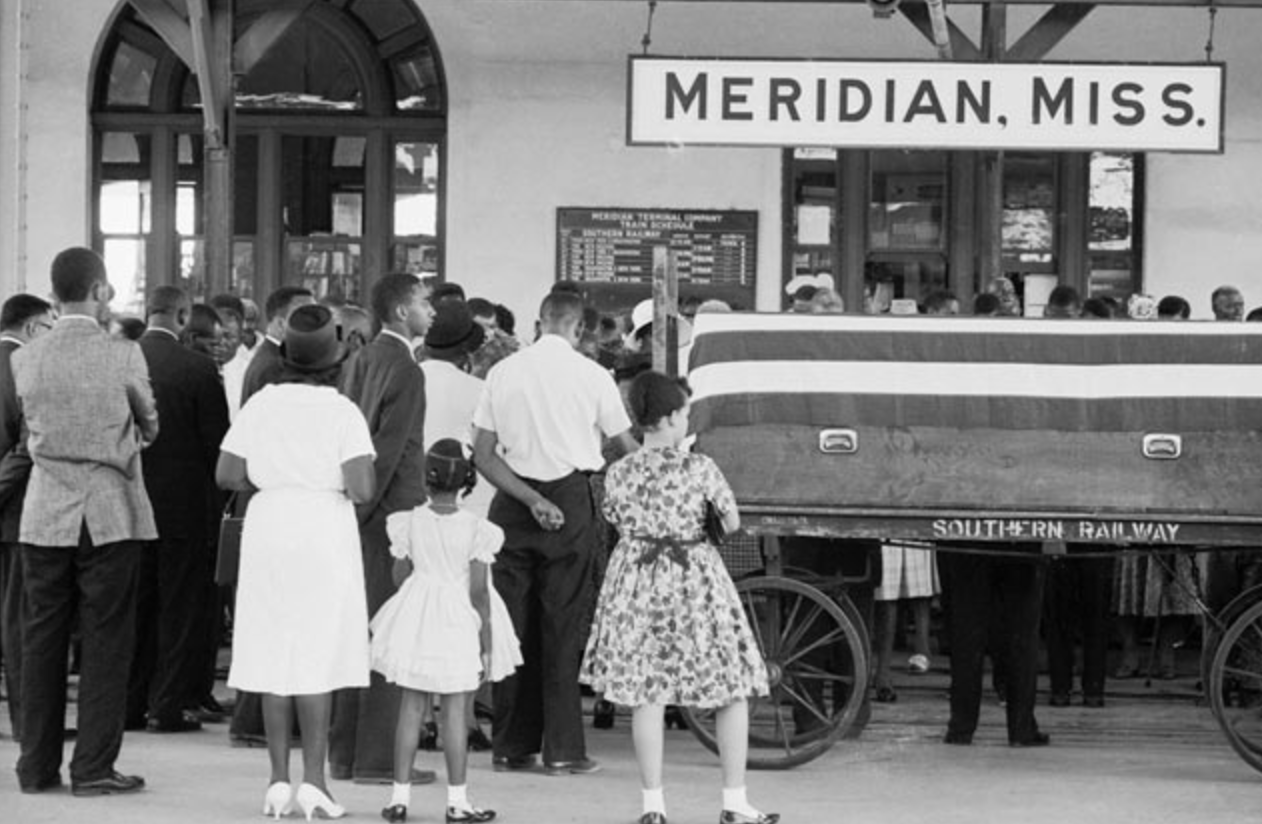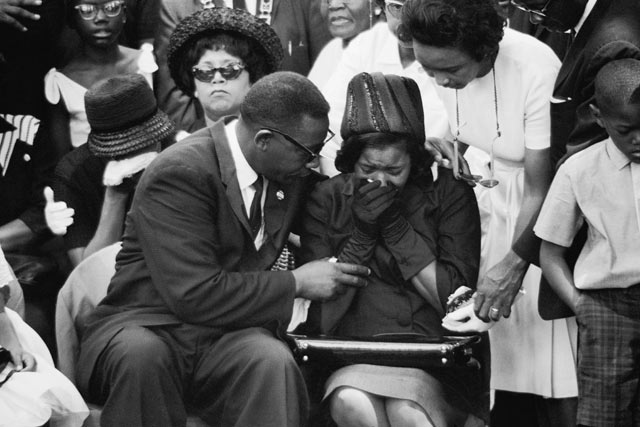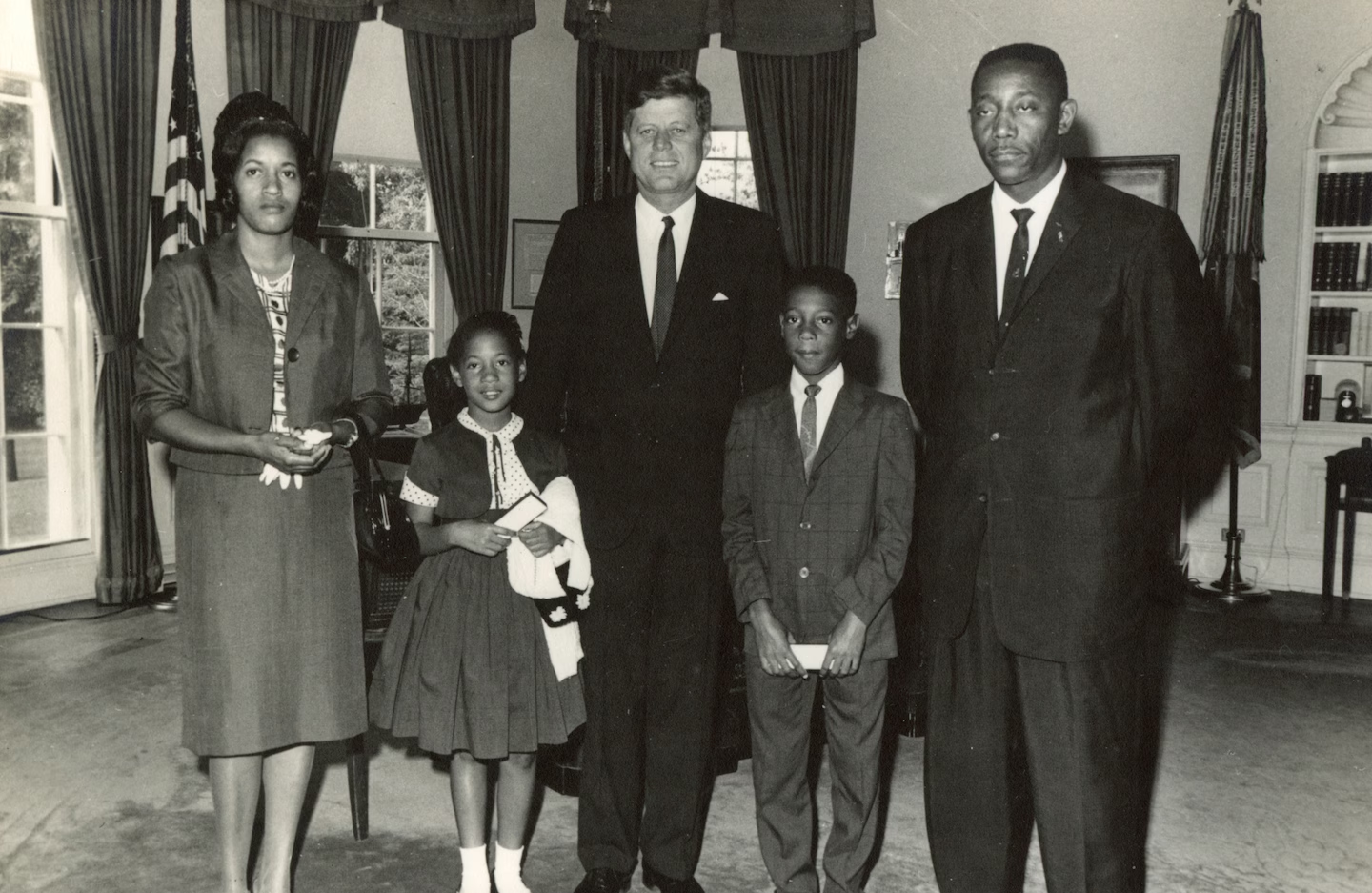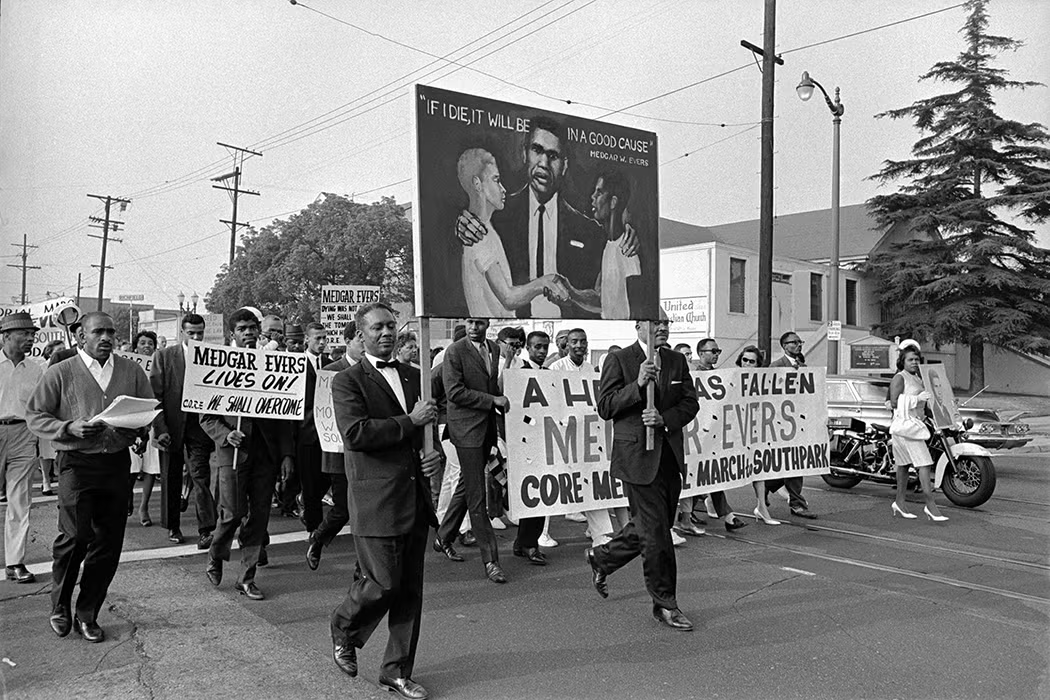
Mourners stand solemnly beside the casket of civil rights leader Medgar Evers at the Meridian train station. (Flip Schulke/CORBIS)

Charles Evers comforts his brother's wife, Myrlie, at the funeral of her husband, slain civil rights leader Medgar Evers. (Flip Schulke/CORBIS)
On June 12, 1963, Medgar Evers was tragically assassinated outside his home in Jackson, Mississippi, by white supremacist Byron De La Beckwith. This tragic act of violence cemented Evers' legacy as a martyr for the Civil Rights Movement. His death sent shockwaves across the nation, igniting outrage and uniting people in the fight for racial justice. The sacrifice and life of Evers underlined the great responsibility of taking over the struggle for equality and, hence, awakened a sense among other people to take up the mantle of leadership.

Mourners stand solemnly beside the casket of civil rights leader Medgar Evers at the Meridian train station. (Flip Schulke/CORBIS)
"His murder sent shockwaves across the nation, highlighting the deadly dangers faced by civil rights activists. The tragedy galvanized support for the Civil Rights Movement, with many Americans demanding reforms to address racial injustice."
- Dorothy Gilliam, Washington Post

President John F. Kennedy, center, visits with Myrlie Evers-Williams; Reena and Darrell Evers, children of Medgar and Myrlie; and Charles Evers, brother of Medgar. (Cecil W. Stoughton/White House Photographs/The Myrlie Evers-Williams Collection at Pomona College)
On June 11, 1963, President John F. Kennedy called on congress "to enact legislation giving all Americans the right to be served in facilities which are open to the public-hotels, restaurants, theaters, retail stores, and similar establishments." Kennedy's speech was followed a few hours later by the assassination of Medgar Evers. Against the backdrop of major civil rights protest and white resistance, Kennedy's speech and introduction of far-reaching civil rights legislation marked a "fundamental fork in the road"
"He said he wouldn’t mind dying—if it meant making a difference"
"Medgar’s death must not be in vain. His work must live on through all of us, and we must carry the responsibility he bore so bravely."
- Myrlie Evers

A memorial march for Medgar Evers, Los Angeles, 1964 via UCLA Library Digital Commons
Evers’ assassination demonstrated the heavy cost of advocating for civil rights, but it also reinforced the shared responsibility to continue the struggle for justice and equality. His death became a turning point in American history, motivating others to protect the rights he championed.